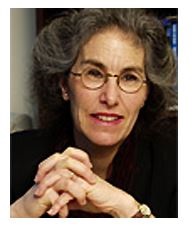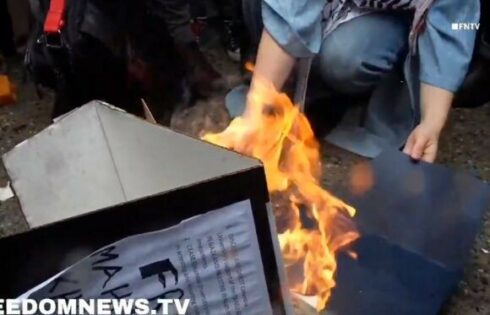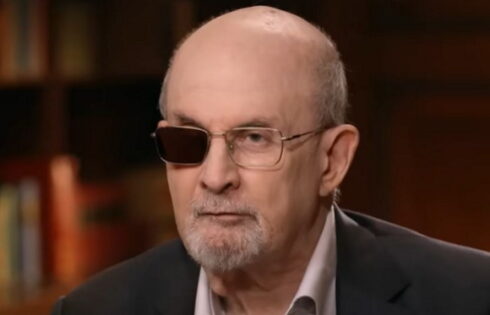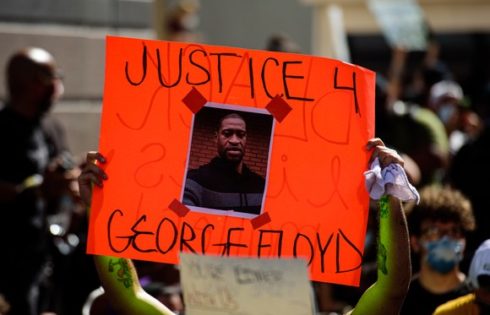
Scholar also calls for sabbatical year from travel every seven years to allow Earth a rest – ‘no big conferences, no academic flying’
A Northwestern University bioethicist who has called climate change the “core moral issue of our time” said she believes ignoring the phenomenon is akin to sin.
Professor Laurie Zoloth, who directs the Center for Bioethics, Science and Society at Northwestern’s School of Medicine, told The College Fix that she agrees with the suggestion recently made by the head of the Episcopal Church that ignoring climate change is “sinful.”
Zoloth, who specializes in Jewish studies, said that sin is the language of Christianity, but that “chet” – the Jewish concept of sin – means “missing the mark,” and matches with the claims made by the Episcopal leader.
“If you understand the science and its implications, and yet, you continue to live in such a way that your (Greenhouse Gas) emissions are  destroying the capacity of the planet to be a safe place, I would say that your actions ‘miss the mark’ if your goal is to live a decent and just life,” Zoloth said.
destroying the capacity of the planet to be a safe place, I would say that your actions ‘miss the mark’ if your goal is to live a decent and just life,” Zoloth said.
The other peg of Zoloth’s argument is that of a sabbatical year, which she says is rooted in her studies of Jewish scriptures.
“I use the source texts of Jewish thought to make my arguments. For example, I use the practice of having a sabbatical year to argue that we, too, should take a year off every seven to let the earth rest. In concrete terms, for academics, that would mean no big conferences, and no academic flying,” she said.
Zoloth, the former president of the American Academy of Religion, made news last December when she used her keynote address at the group’s major conference to call for a sabbatical from the yearly conference in effort to combat climate change.
“We could choose to not meet at a huge annual meeting in which we take over a city. Every year, each participant going to the meeting uses a quantum of carbon that is more than considerable. Air travel, staying in hotels, all of this creates a way of living on the earth that is carbon intensive,” she told the conference’s 9,900 attendees.
The role of religion in the climate change debate has increased over the past few years, largely the result of Pope Francis, who in his own writings has stressed the role of human activity regarding climate change.
When asked how her beliefs were similar to those of Pope Francis, Zoloth told The Fix that “Pope Francis discusses the moral imperative of climate change as a problem inherent in a wasteful, careless, and overwrought capitalism.”
“I agree with him about his analysis of the issue, and about the debt to the poor that is created by the driven, competitive and wasteful society in which we live,” she said.
But some are skeptical of the increasing role of religious leaders in the climate change debate.
Earlier this year, Republican presidential candidate Rick Santorum remarked the Catholic Church should “leave science to the scientists” and instead focus on morality and theology.
When asked how she would respond to these skeptics, Zoloth highlighted her believe that climate change is a moral challenge, and that religious scholars can help contribute to the policy discussions around the issue.
“[Scholars] who study worth, value, justice and compassion have to help to create good policies to protect the world. Science can tell us why, but only policy can tell us how,” Zoloth told The Fix. “And thinking about how one ought to live, how societies can be good societies and how we can face the future nobly– that is the work of scholars and religious leadership.”
Like The College Fix on Facebook / Follow us on Twitter
IMAGE: Shutterstock






Please join the conversation about our stories on Facebook, Twitter, Instagram, Reddit, MeWe, Rumble, Gab, Minds and Gettr.